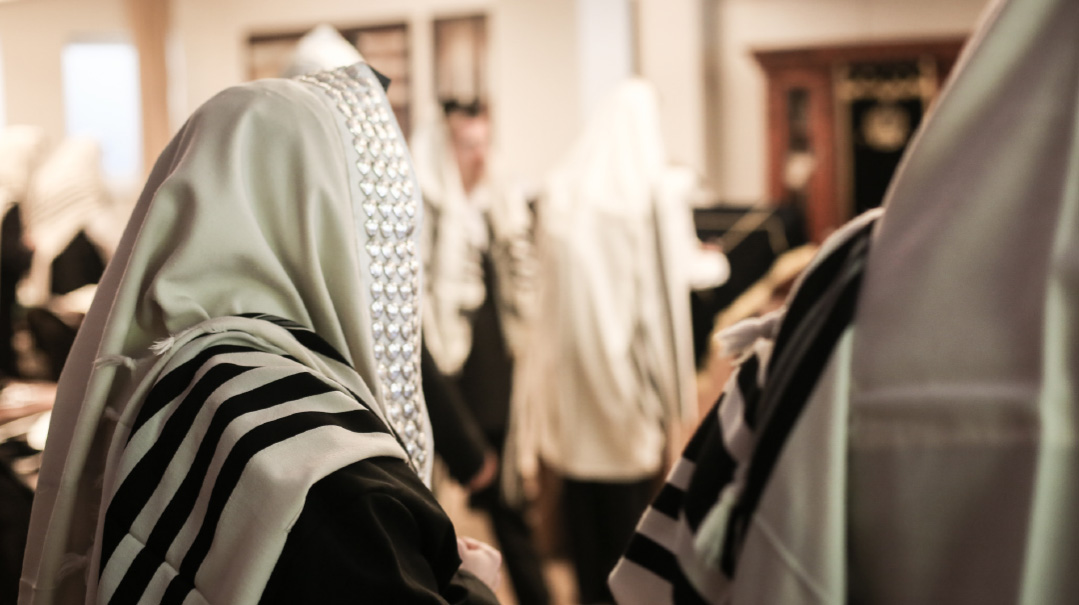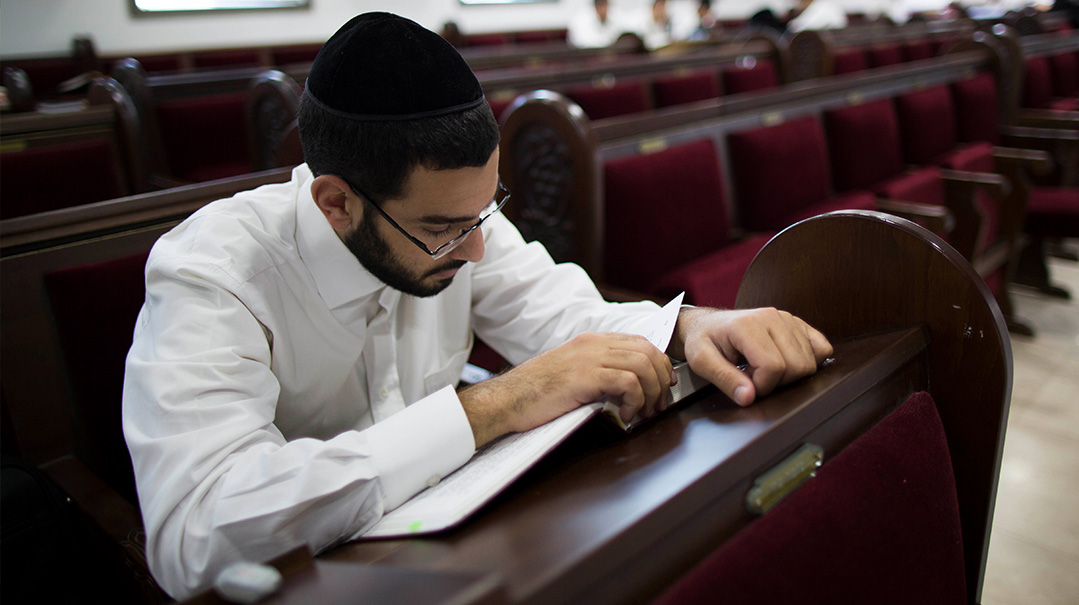That’s Who We Are
 | November 9, 2016
| November 9, 2016
T
hey say that a Jewish fellow was riding the subway and reading an Arab newspaper. A friend of his happened to be riding in the same car and noticed this strange phenomenon. Taken aback he asked “Moshe why are you reading an Arab newspaper?”
“When I used to read the Jewish newspapers” Moshe replied “what did I find? Jews are persecuted Israel is attacked Jews are disappearing through assimilation and intermarriage Jews live in poverty. So I switched to the Arab newspaper. Now what do I find? Jews own all the banks Jews control the media Jews are all rich and powerful Jews rule the world. The news is so much better!”
Every joke has some truth to it right? Sometimes it’s hard not to feel like Moshe — especially these days when we have not only newspapers to remind us of our inadequacies but myriad forms of media: social electronic and otherwise. Exposed to so much negativity it’s truly refreshing to be reminded that for all our shortcomings we are still a great nation.
A recording that circulated recently served as just such a reminder. On the clip a young rebbi spoke about the nissim that his own family had witnessed when his sister became gravely ill and then experienced a miraculous recovery. During this short but powerful speech he described the reaction of the community to his sister’s condition remarking that when word of the young woman’s sudden and serious decline reached the community at large “Klal Yisrael did what Klal Yisrael does.” Such simple words but so profound. Of course people responded with an outpouring of tefillos chesed initiatives visits to kivrei tzaddikim and expressions of care and concern. That’s who we are.
Those words really made me think. How often do we — each of us — do things that seem ordinary but are in fact expressions of our extraordinary DNA? Everywhere we look there are “common” Jews acting in ways that are anything but.
It can be an anonymous tire changer at the side of the road (little did he know that he would not remain a mere Voice in the Crowd) or an exhausted father who uses his last bit of energy to learn with his son after a long day’s work. A rebbi who notices which boy needs some recognition and creates a brand new award just for him is as much of an example as the Hatzolah member who leaves his warm bed on a cold night to help someone in need. We do these things because it’s who we are; we almost can’t help it. Occasionally there are very public displays such as when Reb Noach Muroff “simply” returned a large sum of money to its rightful owner but there are many others that are seen only by the Yodei’a Taalumos.
Rav Samson Raphael Hirsch discusses this idea in his Collected Writings on Elul and adds a stirring call to action. He exhorts readers to consider as the year ends what they have accomplished in their ruchniyus over the past 12 months and concludes with the following question: “Above all have we ourselves led such lives and have we realized in our own lives in the lives of our children and of our families the ideals of purity and truth justice and loving kindness sanctification and consecration? In other words have we translated G-d’s law into reality? Can G-d hold us up as an example to our brethren who have gone astray and say to them ‘Avdi atah Yisrael asher becha espaer — You are my servant O Israel in whom I can take pride’?”
In other words says Rav Hirsch as Rosh Hashanah approaches each year we must examine our deeds through the “who we are” lens and ask ourselves whether we have indeed lived up to our potential. Have we conducted our lives in such a way that will cause others to say with a smile “That’s who we are”? The Yamim Noraim may have already passed but it is always useful to begin with the end in mind. If this is how we are to think about our year as it comes to a close it really should be our focus as we start the year as well.
I think that as a whole Klal Yisrael can proudly answer in the affirmative. Yes we have challenges that cannot be minimized and must be addressed that cannot be denied. Still if we look at our surroundings and consider the effort and sacrifice it takes to maintain our standards it is apparent that we are accomplishing a great deal. Countless are the examples of our fellow Jews standing up and standing out such that they personify Rav Hirsch’s ideal as those Hashem can “hold up as an example to our brethren who have gone astray and say to them Avdi atah Yisrael asher becha espaer.”
My conviction that this is the case has been bolstered in the last few months. Ever since the theme of the upcoming Agudah convention “Who We Are” has gone public people have been relating their own thoughts and reflections and our inboxes have been flooded with the “Who We Are” moments witnessed by common people. I can assure you that the label “Yisrael asher becha espaer” is true as it ever has been. It’s who we are.
Rabbi Shai Markowitz is the Director of the Lefkowitz Leadership Initiative at Agudas Yisroel of America charged with bringing the message of the organization to the next generation. As Founder and Director of Shivisi he has worked with hundreds of teenagers and young adults — from “At Brisk” to “At-Risk.” and authored “The Six Constant Mitzvos” (ArtScroll/Mesorah).
Oops! We could not locate your form.













